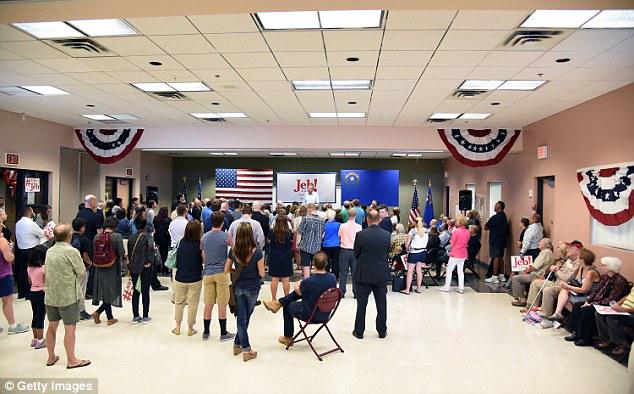It doesnt matter what number you choose. It will only serve to reinforce the consensus opinion that randall ran away with the debate due to his thoughtful explanations, flawless logic, and sardonic skewering of the perfume selling escalateur leading the polls.
Not to mention that luscious hair i want to run my fingers through. Oh sempai, take me
This is great, lol. Would read again.
I don't really have an opinion on it, but your post gave me the impression that it was showing post-debate changes. Looks like Bam Bam Baklava thought so, too. I just wanted to clarify what was being shown in that chart.
I'm definitely interested in seeing more post-debate polling. I think things are going to start to get interesting.
Yes, I realized that. My apologies. It was not my intention to give off that impression. In fact, I had the same impression as you guys before you asked me about it, and then I realized that there was really only one post-debate poll.
I think we'll have to rely on individual polling until there is enough data to reflect a true change in the aggregate. I'll probably select only new polls for post-debates, or other events that could significantly change the general consensus.
I mean, it depends what you're trying to say. Usually the reason someone might post a poll aggregate is to say something about the state of the race right now. If something happened recently that might have shaken things up a lot, especially if you've already got some polls suggesting that that's the case, you probably don't want to rely on an aggregate that gives significant weight to responses from before whatever-it-was.
Right now, probably what most people want to know is what the debate did to people's numbers. So you probably want to know how things stood before the debate, which you can use an aggregate (of pre-debate polls) for. Then you want to know how things stand now, so you want to use only polls from after the debate. It's somewhat useful to be posting individual polls as they come out, since we've got nothing else to go on, but then you want to be averaging them together to try to come up with a best estimate of what the race looks like post-debate. I don't think we need to refrain from looking at polls until we have enough to cross some reliability threshold, but certainly we should be keeping in mind that averages of small numbers of polls could be pretty off.
Very insightful feedback. Thank you.
Yes, it is my intention to attempt to assess the state of the race at any given time, with as reliable information as can be possible, given the type of data we have to work with. It's the reason I came to PoliGAF.
Individual polls are valuable in the sense that they show us the perspective of certain demographics and voting blocs, and do so in a short period of time, which can be somewhat useful in gauging responses after significant situations and events. However, I have truly grown weary of the sensationalism of individual polling, especially heavily skewed ones from pollsters with slanted political leanings. By themselves, those kinds of polls are as valuable to me as a bag of rocks, and even that would probably be appraising them too much.
What I can do is change the dates to range from starting right before each debate or similarly significant event to present time. The truth is that we really don't need polling data from months ago to look at the state of the race right now. Months of polling data will be useful as historical data, but if I'm trying to gauge the general consensus of a specific point in time in the present, it would be best to use just the newest polls.
Of course, the problem is that using only new polls right when they come out is less reliable because the pool of data is too small and not as diverse. However, I have no problem with seeing the data become more accurate over time, so long as it isn't weighed down by a bunch of outdated polls.
EDIT:
So it turns out that I can filter which pollsters can be included in the aggregate. Awesome! When more polls come in post-debate, I'll update the aggregate again only with pollsters who have updated data.






















